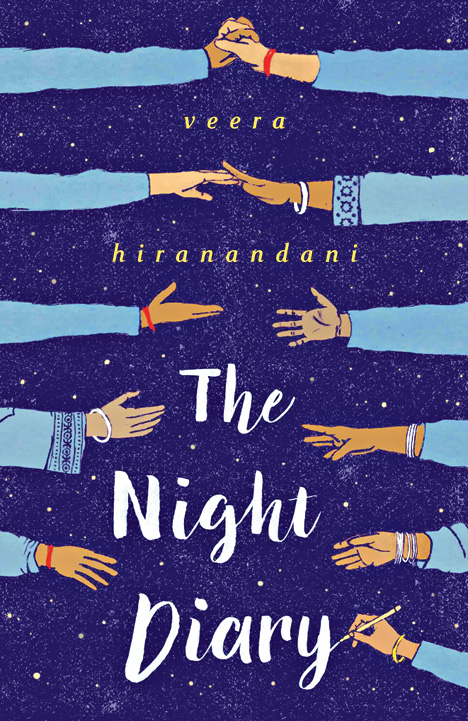
Letters for a late mother
Veera Hiranandani’s epistolary novel, The Night Diary, is about 12-year-old Nisha, who writes poignant letters to her mother who died giving birth to her in India in 1947.
The novel views the fight for Independence through the eyes of this young girl with a Hindu father and a Muslim mother, and the consequences that Partition had for her and the people around her. It is heart-wrenching to read about how Nisha counts in her tiny hands the ones she gets to keep and the ones she has to part with, as her family is forced to abandon Pakistan to come to India, first by train and then on foot.
The emotional heaviness is offset by the vivid food imagery that explores the protagonist’s love for cooking — Nisha’s descriptions of dal and pakodas, and of a bowl of rice and lentils after having walked through rough terrain for days, bring a sense of comfort.
The Night Diary is a moving read about a girl who is trying to find her identity and a place to call home and a time that has long gone by but still haunts us. However, for a book meant for young readers, the violence described requires a mandatory warning.

Love and longing
India in the 1940s was a land plagued by a rebellion on the inside and war on the outside. The world was closing in with Pearl Harbour, and Japan was slowly inching towards India after defeating Hong Kong, Malay and Singapore. In a railway junction town of Pipli, under the British Raj, the protagonist of Kitty’s War, Katherine Riddle, or Kitty as she is known, comes home for the summer to her stoic, widower father Terrence Riddle.
She is back nursing a broken heart, as the loving letters from her fiance, Jonathan, slowly cease to be of love and are increasingly filled with the developments of the war. She is in the company of a tribal ayah whose existence remains nameless throughout the book, perhaps as a memory of the numerous stories of oppression that got lost in translation over the years.
There is Latif, the cook, who is convinced that the oppressive days are finally over, and there is Chuckerbatty, the first “native” assistant station master, who is yearning for a recommendation from his superiors, thereby jeopardising his chances of ever mingling with men who speak of “disobedience”.
The lives of these characters are intertwined, and the stories are strung with the leitmotif of a well-researched, pre-Independence India, complete with its music, tastes, smells and vibrant images painted in a slow pace through words. With her third novel, the writer Daman Singh holds a torch to the darkness that slowly set over the British Raj through this languishing tale of love and conflict.
Sales pitch
Drawing on a two-decade career as a sales trainer for various leading companies, including Ford, Hyundai and Volkswagen, Karan Sondhi provides some handy advice on how to get ahead in the cut-throat world of selling, in The Numero Uno Salesman: Your Guide to Becoming the Greatest Salesman in the World. (Rs. 282; Harper)
Sondhi gives out his tips and tricks through Rohit, a “seasoned sales trainer” with years of experience, who shares anecdotes of the various deals he has struck and his learnings from them. The storytelling format works for what could have otherwise been a business manual.










